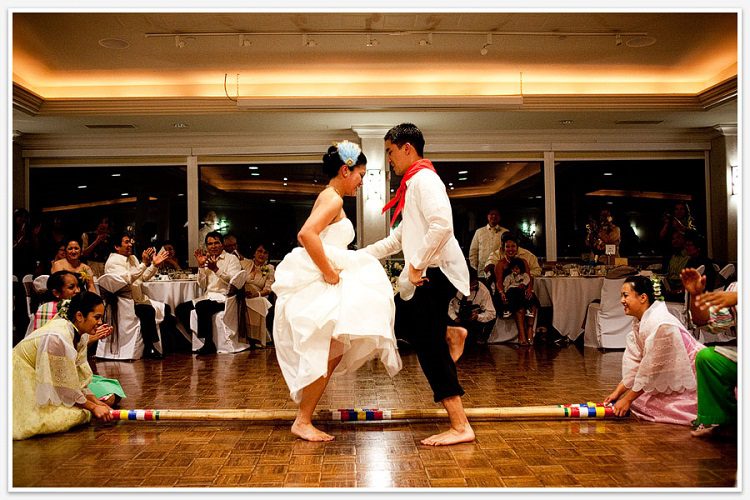Few things in life bring as much stress and excitement as planning a wedding, and one of the top concerns is how to handle the finances. Newly engaged couples often have their hands full with things like guest lists, browsing venues and finding the perfect date, and in the excitement, it can be difficult to make sense of how to pay for it all. Fortunately, like all societal customs, there are expectations in place for who pays for what along the way.
The Bride
It may be the bride’s big day, but that doesn’t make her exempt from financial expectations. While her family may share some responsibilities, there are some costs that the bride-to-be should expect to shoulder alone. Her future husband’s ring is one of them. Men’s rings weren’t always so common, however.
Most Common Items a Bride Pays For
- Wedding gift for the groom
- Wedding invites/stationery
- Hairstylist
- Beautification treatments/ manicure
- Bridal luncheon
The bride is responsible for the wedding gift for her groom. She should also expect to pay for any treatments pertaining to her grooming along the way like getting her hair styled or a spa visit. While she may be called upon to help out her parents with arrangements for her bridesmaids, she should expect to pay for any gifts for her bridal party herself. The maid of honor and bridesmaids should handle any costs for the bachelorette’s party, but a more formal luncheon may fall to the bride.
Maid of honor
The maid of honor takes care of the bride and the other bridesmaids.
The Most Common items the maid of honor pays for
- Helps with Bachelorette party costs
- Wedding attire and accessories
- Gifts
- Hair and makeup
- Her travel expenses
- Bridal shower
The Groom
Often the most important investment for the groom is the wedding ring. While this goes all the way back to the initial engagement, it also includes the cost of the wedding ring. The groom will also need to secure the marriage license and any associated fees for officiating the ceremony.
The groom is expected to pay for the honeymoon and all associated costs, and while his parents may pay for the bulk of any costs for his groomsmen, he may be called upon to assist with accommodations.
Most Common Items a Groom Pays For:
- Engagement rings
- Wedding rings
- Groomsmen gifts
- Marriage license
- Officiant fees
- Bouquet
- Boutonnieres
The groom typically handles personal floral arrangements, paying for the bride’s bouquet, corsages and boutonnières. He is also responsible for providing gifts for his groomsmen.
While the bachelor’s party will be handled by the best man and groomsmen, the groom should expect to pay for a more formal dinner if there is one.
Best man
The best man ensures that the groom is ready for their big moment.
Here are the most common items The Best Man Pays For:
- Bride and groom gift
- Assists with transporting costs for the groom
- Helps with Bachelor party costs
The Bride’s Parents
Traditionally, the bride’s family handles many of the costs, including the reception and ceremony.
These costs include food, decor and entertainment as well as any associated rental fees for things like furniture. The bride’s parents are also responsible for all floral arrangements for these venues along with wedding favors.
They are expected to handle all photography costs along with transportation to the wedding. Before the wedding, the bride’s parents pay for the invitations and attire for the bride. They may also be called upon to cover an engagement party or a formal luncheon for the bridesmaids.
Most Common Items a Brides Parents Pay For:
- Wedding consultant services
- Wedding cake
- Ceremony
- All reception expenses
- Music for the wedding/DJ and entertainment
- Bride’s bouquet (unless customary for the groom to pay for it)
- Videographer
- Bride’s dress and accessories
- All flower arrangements, not including corsages and boutonnieres
- Photographer, wedding albums, and wedding photographs
- Accommodations for bride’s attendants
- Groom’s wedding ring
- Transportation and lodging expenses for officiant
- Bride’s gifts for attendants
- Bride’s gift to the groom
The Groom’s Parents
Like the bride, the groom’s family shares the expenses and helps where possible.
These are the items a groom’s family pays for:
- Bride’s engagement and wedding rings
- Groom’s attire/Tuxedo
- Ties and other accessories for the groomsman
- All costs for rehearsal dinner
- Officiants fee or donation
- Marriage license
- Transportation for the groom and best man to the ceremony
- Honeymoon expenses
- Grooms gift for the bride
- Bride’s Bouquet (if customary)
- Boutonnieres for groom’s attendants
- Corsages for immediate members of both families
Forgoing Tradition
While these are the traditional expectations, not every couple finds these traditions equitable or even reasonable depending on their situation.
If resources are an issue, some couples may opt to forgo certain elements of the wedding or combine costs to share among members of the wedding party. For example, the couple’s parents may split the costs evenly, or the costs may be split three ways between the parents and the bride and groom.
While these customs are typical in America, who pays also varies by culture. For example, Filipino weddings typically place all costs on the groom’s family. In Spain, these costs are handled by various sponsors, often godparents who are honored during the ceremony for their contributions. In Korea, the bride and her family pay for the cost of the wedding. However, with wedding costs frequently beyond the means of many families, a blending of cultures has occurred with traditions falling by the wayside.
Ultimately, how a couple pays for the wedding is a personal decision. While many couples would like to stick to tradition, those expectations are not always realistic, leaving couples in need of a compromise. Before sitting down to plan a wedding, couples should balance how important traditional customs are to them and their families. Most of all, couples should keep in mind that it isn’t who pays at the end of that aisle; it’s the fact that they’re walking it together that matters most.
How paying for the wedding has changed in 2022
The bride and her family have always shouldered most of the wedding costs for hundreds of years. However, society has shifted significantly since then, and today, it is generally accepted that the bride, groom, their respective families, and even guests help shoulder the cost of a wedding.
Wedding Guests Contributions
Today, the bride and groom can request that their wedding present be contributions to a honey fund to help pay for the cost of the wedding or honeymoon.
How does culture play a role, and who pays for specific weddings
Culture can significantly impact who is expected to pay for a wedding.
Introduce the section and callout that culture can play a role in who pays for what in the wedding
Mexican weddings
In Mexican culture, weddings are generally paid for by sponsors or Los Padrinos y Madrinas. These are godparents that the couple chooses either as a symbolic gesture or a monetary one. These sponsors help pay for the wedding and present the couple with various gifts such as rosary beads and a kneeling pillow to be used in the ceremony. They also provide the cake, photographer, music, and liquor for the reception.
Indian weddings
A modern Indian wedding is split between the couple and their parents, 50/50. If one side has more guests or additional costs are concerned, these numbers are adjusted accordingly. However, wedding practices will depend on the region. Many families still have the bride’s family pay for the wedding and provide a dowry for the groom.
Who pays for what and second weddings?
In our modern age, the bride’s family shouldn’t be expected to pay for the entire wedding, even if it’s the first one. Second weddings are usually split between the bride and groom and are much smaller than the first. Friends and family can assist with this cost as well.
Tips on how to talk about who pays for the wedding
Weddings can be a sensitive topic, and discussions concerning money are never enjoyable for any party. Here are a few tips to make this conversation less difficult.
Do not expect anything from friends and family
Always remember that gifts are a courtesy and that money has a different value for every guest. Many of your guests will have traveled great distances just to attend your special day, so don’t always expect monetary compensation. The most you can ask of your friends and family is that they arrive on time and can attend.
Ask your family directly and be specific
If you need to ask your family for financial assistance with your wedding, it is key that you ask directly and are specific about all details. List exactly what you need help with and ask if they can help.
Write who pays for what down
Be organized. Keep a record of who is paying for what at all times. This will help you plan accordingly and calculate your overall expenses.
Be understanding
Weddings are expensive undertakings, so every little bit helps. Always be understanding regardless of the amount given to you. Being gracious and courteous will prevent any drama or issues in the future.
Always have a Plan B
Life can be unpredictable, so your wedding plans must be flexible. Family funds can dry unexpectedly or tragedy may occur, so it is key to have a plan B, a plan C, and a plan D, E, etc. You need to plan for the unexpected and set aside emergency funds or be prepared to scale back your wedding.
Remember that a wedding is expensive to plan and not all of your family and friends will understand that. In addition, each year, the wedding industry changes, and keeping up can be pretty jarring. So the best you can do is be honest and transparent with your friends and family at every step. Have a flexible budget and multiple backup plans, and remember that it’s your wedding, so don’t let tradition hold you back.









